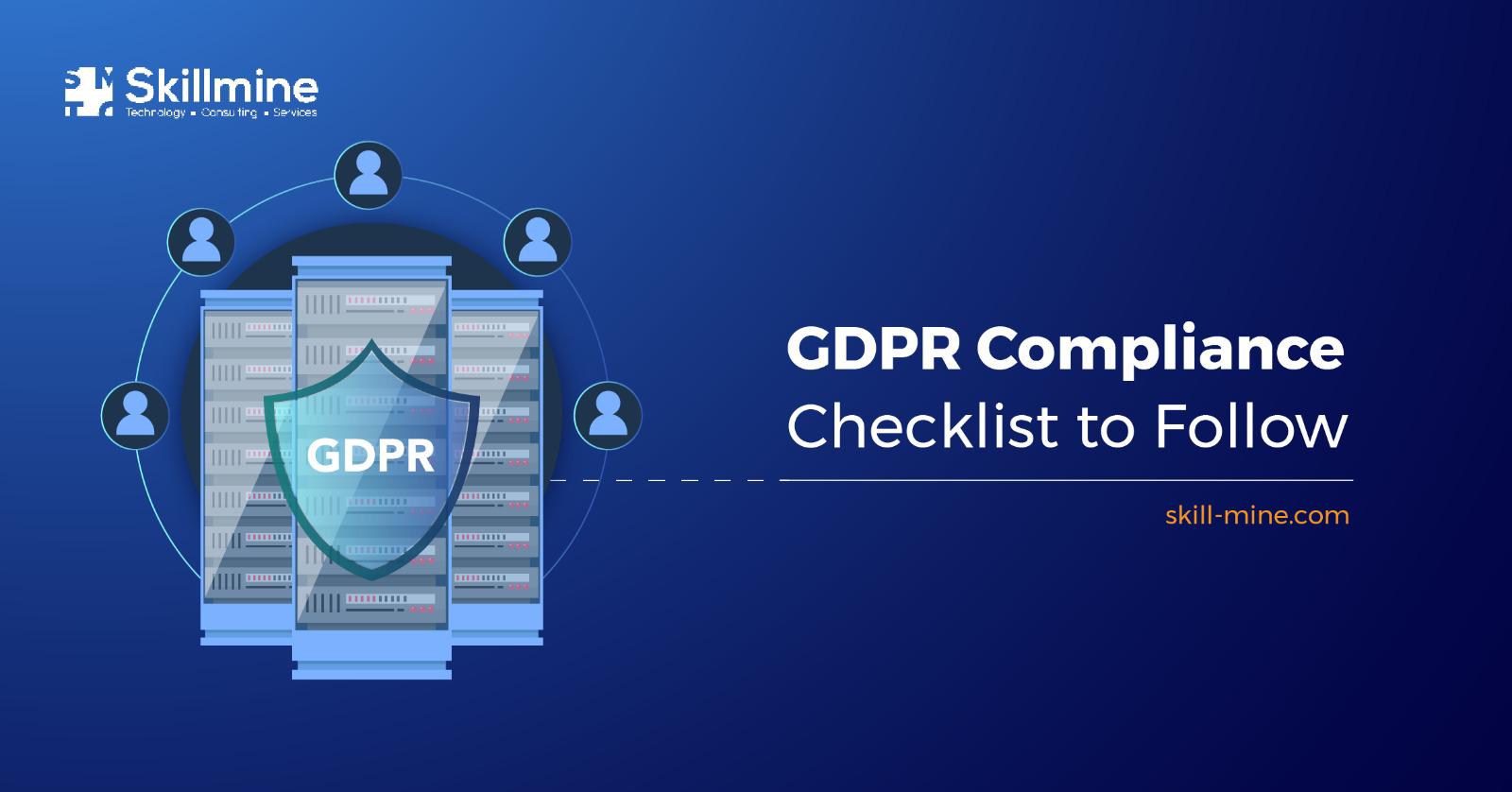The General Data Protection Regulation (GDPR) is one of the most comprehensive data regulatory reforms of recent times. GDPR affects how global companies approach their external data protection policies, such as data security and internal data access and use. The aim is to give individuals in the EU and UK greater transparency and control over their personal data. In addition, it modernizes and combines into one regulation the data protection provisions of individual EU member states according to previous EU directives. India, too, follows GDPR compliance set by the EU Union and the United States of America.
This blog post describes the requirements imposed by the GDPR and offers a checklist to support organizations in remaining compliant.
What is meant by General Data Protection Regulation?
The GDPR is the culmination of bold data protection reforms in the European Union (EU). Strong privacy standards came into effect on May 25th, 2018, to protect the rights of individuals. The purpose of this cyber security system is to protect the personal data of every EU resident.
Why being compliant with GDPR is essential for organizations?
GDPR requires organizations to work hard to protect personal data and provide evidence that their standards are being met. Consent plays an essential role in the collection of data on EU citizens, which places limits on companies’ data collection. In each case, the person should be informed about the scope of the collection and the opt-out options. GDPR compliance also requires greater transparency regarding data storage, use, and access rights.
In cyber security, GDPR is a regulation that forces companies to adopt better security and privacy practices. This is becoming increasingly important as online attacks and data breaches increase.
What types of companies must comply with GDPR Rules?
Essentially, any company that does business or plans to do business with residents of an EU country where they process their data must comply with GDPR requirements. Approved by the European Parliament in April 2016, the GDPR aims to ensure a level playing field for businesses of all sizes dealing with EU citizens to carefully and appropriately manage the data of their valued customers. The GDPR applies to any processing and all data originating in the EU, regardless of how the data is handled, processed, stored, or transferred by the company.
GDPR Compliance checklist
Businesses can assess their compliance level and become GDPR Compliant by 2023 by using the following GDPR compliance checklist.
Awareness
Organizations must take a comprehensive approach to compliance work by involving all employees. It is vital to instill a sense of responsibility and increase your employees’ awareness of data security and protection. Identify whether the GDPR has been complied with by their third-party suppliers and subcontractors. Change your business partners if necessary, or ask them to become compliant. They must also have data processing agreements with third-party suppliers to be fully compliant.
Review privacy notices
Organizations must update the content of their privacy policies to reflect recent developments, such as how they collect personal data, why they do so, what they intend to do with it, and how long they will keep it. They should develop a comprehensive cookie policy that explains which cookies are active on their website and what they are used for.
Keep track of data processing flows
Companies must be aware of how data from their clients enters and leaves their cloud-hosted business. The GDPR’s accountability principle, which calls for companies to be able to demonstrate the steps they are taking to comply with the data protection principles, can be met by creating such records for every piece of data. To keep it current with their data handling practices, compile the information into a coherent document and update it frequently. Clients must be informed about any inaccurate personal data they have shared so that they can be updated.
Review the rights of individuals
Review your organization’s privacy, data protection procedures and policies to ensure they consider individual rights defined by the GDPR. This includes information on how customers’ data will be deleted and whether you can provide data electronically in a commonly used format.
Examine your cloud processing activities
Under GDPR, it is crucial to identify your lawful basis for data processing, as individual rights will vary depending on the use of the data. Examine the data processing activities of your cloud-hosted business and determine its legal justification.
Safeguard children’s data
If you’re processing children’s data, think about whether you need to set up procedures to ensure that individuals are of legal age and to secure parental or guardian approval. You must get a parent’s or guardian’s permission if your cloud-hosted business offers information society services to kids that call for their consent to collect their personal data. Verifiable and expressed in a kid-friendly way.
Amend existing consent
The GDPR mandates that cloud-hosted businesses update their cookie consent banners with clear, concise, and specific language, just like they must do with their cookie policy. People who do not want to consent should have an opt-out button available. Custom user consent can be made for your organization by automated cookie software. If your current methods of obtaining consent are not GDPR compliant, review all other options and ask for new consent.
Create a procedure to investigate data breaches
Put the appropriate processes in place to identify, notify, and investigate a personal data breach. Identify the categories of data you are holding by conducting a GDPR assessment, and note which ones will require notification in the event of a breach.
The GDPR requires all cloud-hosted businesses to notify about specific types of data breaches and, in some circumstances, the affected individuals. For instance, the breach will likely put people’s rights and freedoms at risk, costing your company money or harming its reputation.
Embrace a data privacy mindset
Cloud-hosted businesses should use the “privacy by design” approach. When there is a high risk, such as when a profiling exercise could impact users or when a new technology is implemented, they should carry out a data protection impact assessment.
Businesses should implement IT measures such as employee two-factor authentication and TLS/SSL certificates. They should encrypt the passwords of your systems and protect the devices that employees use when they come to work. Instead, they should regularly scan devices, systems, and networks for potential security vulnerabilities.
Conclusion
Non-compliance to GDPR can lead to financiaal penalties, closer inspection by regulatory bodies, inadequate protection and negative publicity. To comply with the GDPR, organizations must spend significant time and effort to strengthen their data protection measures, and review their entire workflow to ensure that personal data is collected, stored, and processed securely and that all employees adhere to security policies.
Organizations can ensure they comply with GDPR with the help of the Skillmine team to guarantee that their operations go on without a hitch. Our team can ensure that your business follows the GDPR at every step while putting in place a set of protocols to ensure data breaches don’t occur.
Looking for expert technology consulting services? Contact us today.





